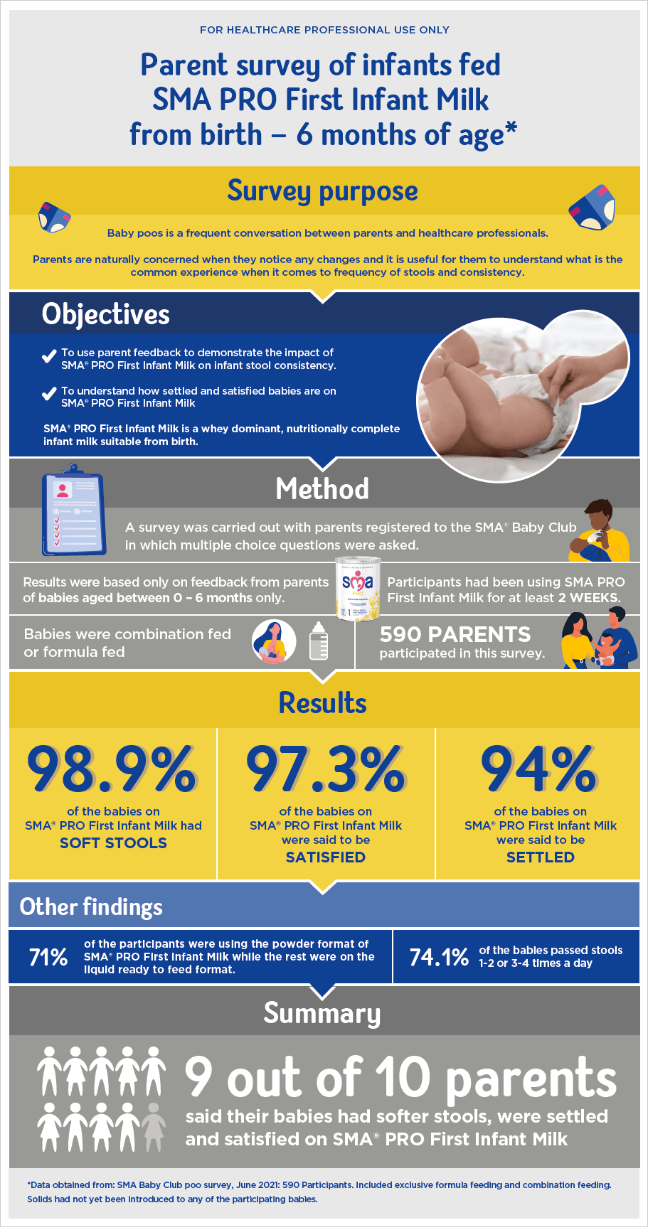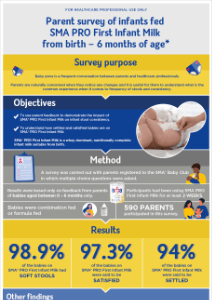Overview
Baby poos is a frequent conversation between parents and healthcare professionals. Parents are naturally concerned when they notice any changes and it is useful for them to understand what to expect when it comes to frequency of stools and consistency.
The frequency of stools in early life tends to be affected by whether they are breastfed, or formula fed1.
Breastfeeding is best for babies and exclusive breastfeeding for the first 6 months of life is recommended2, Parents may choose to formula feed or combination feed for various reasons and may seek guidance from their healthcare professionals.
First poos, colour and consistency
An Infant's first poos are called meconium and tends to be sticky and greenish black. After a few days the poo may change to a yellow or mustard colour. Breastfed babies' poo may be soft or runny and doesn't smell, formula-fed babies' poo is firmer, darker brown and smellier.
A change in the feeding mode might lead to a change in baby's poo. When an infant is switched from breast to formula feeding, babies poos may become darker and more paste-like3.
How Often Do Babies Poo?
- Babies do an average of 4 poos a day in the first week of life, which goes down to an average of 2 a day by the time they're 1-year old3.
- Newborn breastfed babies may poo at each feed in the early weeks and after about 6 weeks, may not poo as often3.
- Newborn babies that are formula-fed may poo up to 5 times a day but after a few months may only poo once a day.
Other common factor that influences poo consistency in early life
Changing the type of feed a baby receives could change the consistency of a baby’s poo such as changing from breastfeeding to formula feeding3 or changing from liquid formula to powdered formula.
When changing from breastmilk to formula, changes should be made gradually rather than abruptly, ideally over the period of at least several weeks, this will give babies digestive system time to adapt, it will also reduce the risk of mastitis for mother4. Phasing out feeds slowly, one feed at a time and replacing it with the new feed will allow them to slowly transition over. Parents can be given a slow transitioning chart for guidance.
A survey was carried out among parents of babies between 0 to 6 months of age to understand the most common experiences relating to poos when they were fed infant formula.


Download the infographic

